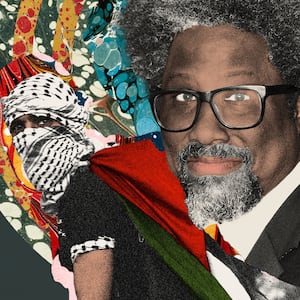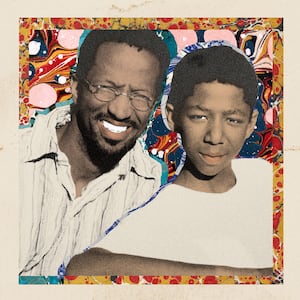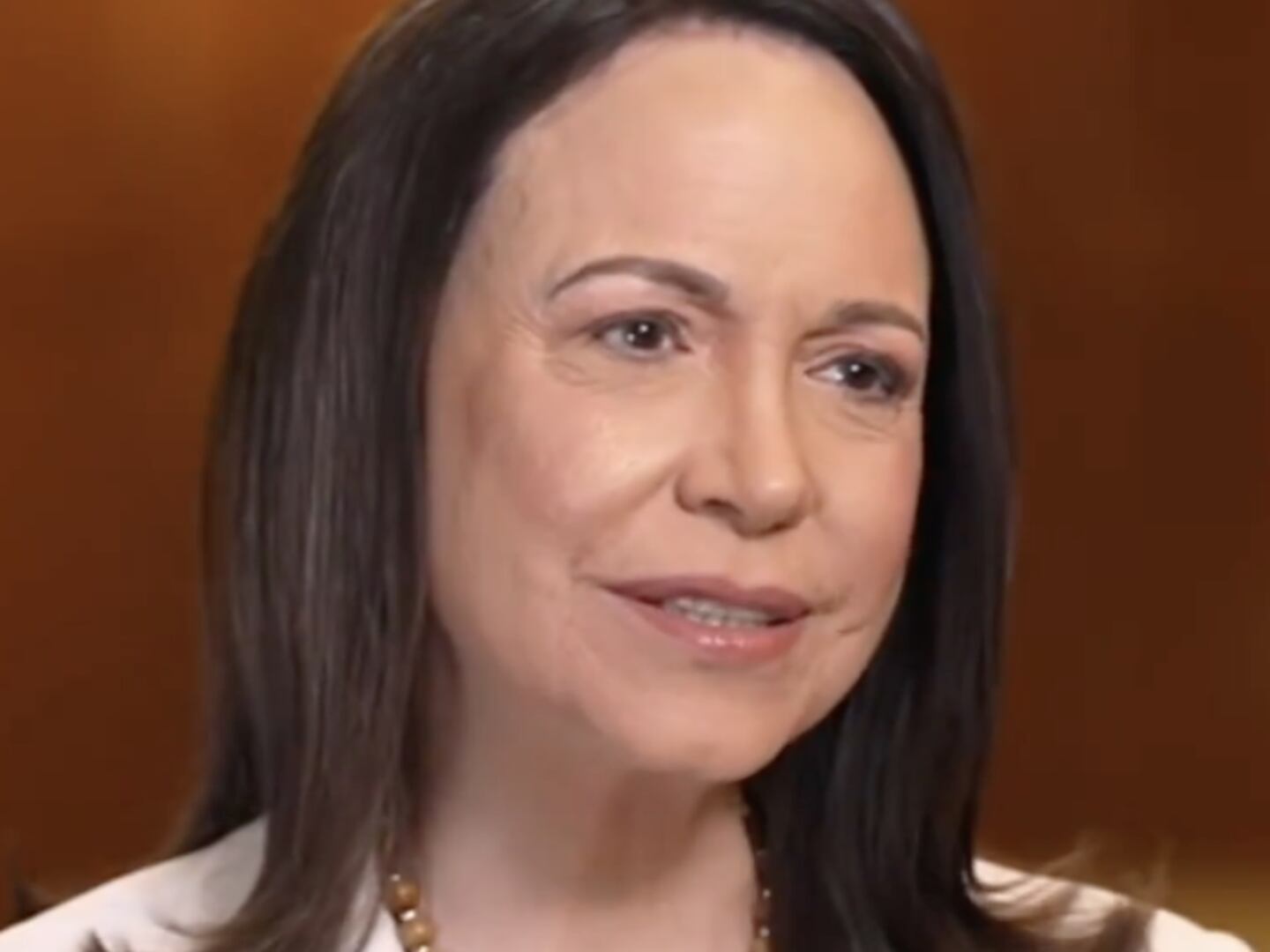U.N. Secretary-General Antonio Guterres is the hero of 2023. He is using his position to bring major reforms to the United Nations while also calling upon Israel to end the onslaught of Gaza and introduce a humanitarian ceasefire.
I admire his courage to speak up in defense of the civilian population in Gaza and his unwavering commitment to achieve peace. Despite Israeli demands that he should resign, he said last week: “As the conflict intensifies and the horror grows, we will continue to do our part. We will not give up.”
Trust in the U.N. was seriously undermined after the peacekeeping failures in Srebrenica and Rwanda in the 1990s, and little was achieved in the years after to reinvigorate the institution. That changed when Guterres became secretary-general on Jan 1, 2017, following his election by the U.N. General Assembly on Oct. 13, 2016. He came in determined to reform the organization by improving transparency, accountability, and efficiency. However, Donald Trump became president on Jan. 20, 2017, an isolationist who was calling for massive cuts to foreign aid and contributions to international organizations such as the United Nations. Guterres realized the global political situation was fragile.
He worked gradually to restore trust in an institution that is fundamental for the stability of international order. The fear now is that we risk tumbling into a Third World War as the latest conflicts unfold—and Guterres has found his voice.
In September, he condemned Russian President Vladimir Putin’s war against Ukraine in a powerful rebuke, saying the invasion had “unleashed a nexus of horror: lives destroyed; human rights abused; families torn apart; children traumatized; hopes and dreams shattered.”
There are still many problems left to solve, not least the system at the Security Council, but this year has been the high point of his efforts to try to convince the world that the U.N. should be an independent body with its own authority beyond the influence of Washington and Moscow.
Guterres unveiled his plan for the U.N. earlier this year under the banner of “A New Agenda for Peace” and peacemaking has been at the heart of everything he has worked to achieve.
His reforming agenda focuses on the prevention of conflict, increasing the effectiveness and coherence of peacekeeping as well as greater gender equality, and the participation of women and younger people. A new U.N. Youth Office was established this year, and the U.N. hosted a Summit of the Future in September. A major theme on this focus on future generations has been the emphasis of climate justice in the United Nations agenda.
These themes are also at the heart of the Bianca Jagger Human Rights Foundation’s objectives: We are dedicated to defending human rights, achieving climate justice, addressing the threat of climate change and speaking up for future generations.
I was very critical of the U.N. after the failure to prevent the genocide in Srebrenica, eastern Bosnia, in the 1990s. I published an essay entitled, “The Betrayal of Srebrenica” and, on March 31, 1998, I testified before the Subcommittee on International Operations and Human Rights at the House of Representatives in the U.S. laying out the egregious failures of an institution set up in the wake of World War II to ensure we never witnessed genocide again.
On July 11, 1995, the “safe area” of Srebrenica was overrun by Bosnian Serb troops. More than 8,000 civilians were systematically killed in four days of carnage—virtually the entire male population was massacred in cold blood. The international community, and the U.N. failed the people of Srebrenica, who were supposed to be protected by the U.N. Instead, a genocide was allowed to take place.
The betrayal of Srebrenica had a profound impact on my life because I was in Bosnia at the time. I have been haunted by the atrocities perpetrated in Srebrenica. I have not been able to forget those who were executed, massacred, tortured and buried alive because I feel that if I forget them, I would be completing their extermination.

Bianca Jagger with ethnic Albanian refugees from Kosovo at the Morina border crossing where several thousand refugees fled.
Reuters PhotographerIn 1993 I was asked by members of the Helsinki Commission of the U.S. Congress to document the mass rapes that were being perpetrated against Bosnian and Croatian women. In February 1993, I travelled through the region with the U.N. refugee agency to document the rapes; I witnessed unspeakable horrors. The International Criminal Tribunal for the Former Yugoslavia (ICTY) estimates that between 20,000 and 50,000 mostly Bosnian women were raped by Bosnian Serbs, and that 80 percent of those happened over a prolonged period of imprisonment. One in 10 Bosnian children had been killed by the end of the war.
You could not witness what I experienced without a profound transformation.
The hospital in Tuzla was filled with children who needed amputations—they were performed by a medical assistant who had a hacksaw but no anesthesia. There’s one image I will never forget: a mother pushing a wheelchair that was carrying her two daughters, both of whom had had a leg amputated.
As a mother, my instinct was to try to help save these children, so I returned in March 1993. Dr. Zunic asked me to evacuate Sabina, 12, whose leukemia had an 80 percent survival rate if treated in time, and Mohammed, 8, who had a congenital heart problem requiring an urgent surgery. The local hospital could not provide the treatment required. They would have died if they stayed.
The Albert Schweitzer Institute arranged medical treatment for them in the U.S., and a congressman secured the visas to get them into the country, but the U.N. Protection Force refused to fly them out in one of their helicopters.
A month after I arrived, the doctor said Sabina would only survive 10 more days without treatment. There were only two options remaining, leave her to die or attempt to drive her out directly through a warzone. No ambulance was available, but I urged Major Phillip Jennings, the commander of the British battalion, to escort us on a treacherous journey in a four-wheel drive. We made it through crossfires, but Sabina was by then bleeding from her nose and vomiting blood. When we finally arrived in Split, she suffered a brain hemorrhage and died.
A short helicopter flight three weeks earlier could have saved her life, but we were too late.
Mohammed underwent heart surgery at Columbia Presbyterian Hospital in New York and lived with me for a year while he recovered, but I will never forget the damage done by institutional indifference in Bosnia.

A Bosnian Muslim woman cries between graves of her father, two grandfathers and other close relatives, all victims of Srebrenica genocide, July 10, 2020, at the cemetery in Potocari near Srebrenica, Bosnia and Herzegovina. More than 8,000 Bosnian Muslim men and boys were killed after the Bosnian Serb Army attacked Srebrenica, a designated U.N. safe area, on July 10-11 1995, despite the presence of U.N. peacekeepers.
Damir Sagolj/Getty ImagesThis experience has made me focus my attention to the role Antonio Guterres is playing at the U.N. Finally, here we find a secretary-general looking to reform the U.N. to deliver its intended mission to “save succeeding generations from the scourge of war” and maintain international peace and security.
Guterres was thrust into the limelight when Hamas launched the unspeakable attack on Israel that killed 1,200 people on Oct. 7. His office responded quickly, with his spokesman saying “The Secretary-General condemns in the strongest terms” the attack by Hamas.
Three days later on Oct.10, as the Israel Defense Forces bombarded the Gaza Strip in retaliation, Guterres made a statement calling for humanitarian access to the Palestinians who needed medical aid and supplies. “The humanitarian situation in Gaza was extremely dire before these hostilities, now it will only deteriorate exponentially,” he said.
That was the same day that President Biden gave a major address from the White House telling the world, “Let there be no doubt: The United States has Israel’s back.” And explaining that the U.S. was “surging additional military assistance” to the Israelis. Guterres was already raising the alarm over the human cost of the military escalation.
By Oct. 24, Israel was calling on Guterres to resign as secretary-general after he pointed out that the Hamas attacks “did not happen in a vacuum.”
Undeterred, Guterres continued to challenge Israel’s relentless military response to the attacks. On Nov. 2, he noted the “horrific toll” on journalists in the region and the killing of journalists has continued to rise. By Dec. 20, the Committee to Protect Journalists said 68 journalists had been killed in the first 10 weeks of the conflict, the most ever killed in a single country over an entire year.
While the White House continued to make it clear that there were no “red lines” to constrain Israel, the IDF was carpet bombing an enclave which is home to over two million people.
After a seven-day humanitarian pause to exchange prisoners and hostages that began on Nov. 24, Israel launched an assault to try and obliterate Gaza. The IDF said it attacked 200 targets on the first morning, including buildings in Khan Younis in the south of the Gaza Strip where it had originally ordered civilians to shelter.

Palestinians bury people killed by Israeli strikes, after their bodies were released by Israel, at a mass grave in Rafah, in southern Gaza, Dec. 26, 2023.
Ibraheem Abu Mustafa/ReutersPeople who had fled the north on the orders of the IDF, came under brutal attack in the very places they had been told to go.
Guterres invoked the rarely used Article 99 on Dec. 6, which allowed him to convene the U.N. Security Council, asking them to consider a resolution calling for an immediate humanitarian ceasefire. Article 99, which allows the secretary-general to raise the alarm at a time of crisis, had not been used in more than 50 years.
To the horror of world leaders, humanitarian and human rights groups and United Nations officials, the U.S. vetoed the draft resolution that was before the Security Council at the same time that the Israeli army was tearing into Gaza and a slaughter was taking place.
Did the U.S. not think that the death toll at the time of 17,487 Gazans was enough collective punishment? And did they forget that collective punishment is a war crime under the Geneva Convention?
Antonio Guterres said Gaza had become “a graveyard for children” on Nov. 6, and the situation has continued to deteriorate.
On Dec. 23, Guterres said 85 percent of the population had been forced to flee their homes, water was reduced to a trickle and there was a threat of famine. “Four out of five of the hungriest people anywhere in the world are in Gaza,” he said.

United Nations Secretary General Antonio Guterres speaks during a U.N. Security Council meeting about his invoking Article 99 of the U.N. charter to address the humanitarian crisis in the midst of conflict between Israel and the Palestinian Islamist group Hamas at the U.N. headquarters in New York City, on Dec. 8, 2023.
Shannon Stapleton/ReutersVolker Türk, the U.N. High Commissioner for Human Rights, said on Dec. 22, “Starvation must never be a means or result of warfare.”
On Dec. 23, Guterres was mourning the unprecedented deaths of U.N. workers. “136 of our colleagues in Gaza have been killed in 75 days—something we have never seen in UN history. Most of our staff have been forced from their homes. I pay tribute to them and the thousands of aid workers risking their lives as they support civilians in Gaza,” he wrote on X.
My experience in Bosnia taught me what it was like to survive in a nightmare zone. As I watch the videos coming out of Gaza, I keep asking myself, why am I crying watching these harrowing images? It reminds me of the blockades of food and medical supplies in Srebrenica, people being deprived of drinking water, of electricity, fuel. Israel has turned Gaza into an open-air prison.
But it’s not just Bosnia in my heart. I have also witnessed the horrors that Palestinian children endure.
In April 2002, I went to the West Bank with the United Nations Population Fund. I was part of a human convoy delivering basic supplies to Hebron, Nablus, Ramallah, and the Jenin refugee camp in the West Bank after an Israeli incursion. I witnessed ambulances made to wait hours to go through a checkpoint, I spoke to a father who lost his child because the ambulance wasn’t allowed through the checkpoint to receive medical attention in time.
I met with Shimon Peres, a former president and prime minister of Israel, I wanted to relate to him what I had witnessed in the occupied territories. I told him that I understood Israeli security concerns, but that I couldn’t understand why ambulances were being stopped. “Bianca, he said to me, “The reason we don’t let the ambulances through is because we’re concerned that they may be carrying bombs.” I asked if they could not just check to see if there were any bombs and then let the people who are at risk of dying in the ambulance to go through?
I believe that all of us have a responsibility not to turn a blind eye to this inhumanity, not to look away while children are being massacred.
To me, this is the very basis of humanity. There is even less of an excuse for governments because they are bound by international law not to turn away from the kind of wanton destruction and massacres that amount to war crimes or what could be regarded as an unfolding genocide which are happening right now in the Gaza Strip.

Relatives of the Palestinians killed in Israeli attacks mourn at Nasser Hospital in Khan Yunis, Gaza on Dec. 27, 2023.
Belal Khaled/Anadolu via Getty ImagesAfter World War II, there was a commitment by the international community that “never again” should the horrors of that war be repeated. Over 150 nations have signed onto the Genocide Convention, which was first ratified in 1948, and yet many states don’t seem to fully understand its implications.
Yes, of course, the signatories have committed not to carry out acts of genocide themselves, but there is another fundamental element of this essential, universal pledge. The convention established the obligation for nations to take measures to prevent and to punish the crime of genocide.
It is codified in law, that Washington and London, the European Union, and every capital on Earth cannot simply sit back and watch while genocide unfolds before their eyes. To many experts, what is being perpetrated in Gaza is a genocide.
Article II of the convention states that “genocide means any of the following acts committed with intent to destroy, in whole or in part, a national, ethnical, racial or religious group,” including “Killing members of the group,” or “Deliberately inflicting on the group conditions of life calculated to bring about its physical destruction in whole or in part.”
The death toll in Gaza has now reached the staggering number of 21,110 with 55,243 injured, according to the Hamas-run health ministry, and the enclave has been rendered uninhabitable with hospitals no longer functioning, and medics being forced to carry out surgery with no anesthetic or painkillers. They’ve been denied water, food, electricity and fuel; hundreds of thousands of displaced people are crowded into tiny areas with little or no shelter. Nowhere in Gaza is safe.
Statements by members of the Israeli government have bolstered suggestions that ethnic cleansing is justified. Even before the latest conflict began, Prime Minister Benjamin Netanyahu appeared at the U.N. General Assembly in September with a “new map of Israel” which eradicated Gaza and the West Bank from the region. When he ordered a “complete siege” of Gaza, Defense Minister Yoav Gallant explained, “We are fighting human animals and we are acting accordingly.”

Prime Minister of Israel Benjamin Netanyahu holds up a map showing the occupied West Bank and Gaza as part of Israel at the 78th Session of the General Assembly of the U.N.
Lev Radin/Pacific Press/LightRocket via Getty ImagesDanny Neumann, a former member of the Knesset, said this month: “I tell you, in Gaza, without exception, they are all terrorists, sons of dogs. They must be exterminated, all of them killed. We will flatten Gaza, turn them to dust and the army will cleanse the area.”
A leaked Israeli Intelligence Ministry policy paper written on Oct. 13 also recommended that the population of Gaza be permanently relocated to the Egyptian desert.
After he used his position to call for a ceasefire on Dec. 6, Israel said, “Guterres’ tenure is a danger to world peace.”
The United States continues to defend Israel’s position at the U.N. and has continued to stall and water down Security Council resolutions. The Biden administration should be wary of being found to be complicit in war crimes being perpetrated by Israel. Without the funding, the weapons, the ammunition and the political support from the U.S., Israel would have limited means to continue its bombardment of Gaza.
Mary Robinson, a former president of Ireland and United Nations High Commissioner for Human Rights, said last week on the Irish network RTE, “The truth is the United States is losing respect, is losing credibility basically as a powerful nation even, it’s looking weak.”
She went on to say: “It hasn’t put conditions on its military support…The United States is increasingly complicit.”
United Nations Secretary-General Antonio Guterres’ calls for an immediate humanitarian ceasefire may have fallen on deaf ears with some world leaders, but he has become a hero for millions of people throughout the world who believe that his courageous stand to stop the carnage and the decimation of the Palestinian people is the right thing to do.
You can view the complete Heroes 2023 series here.










